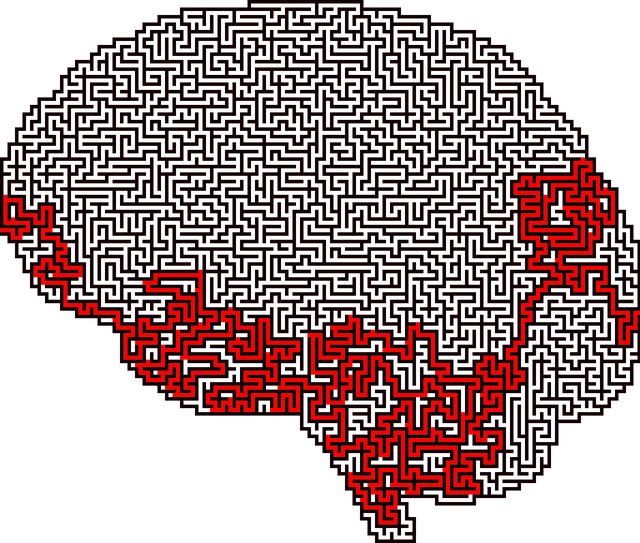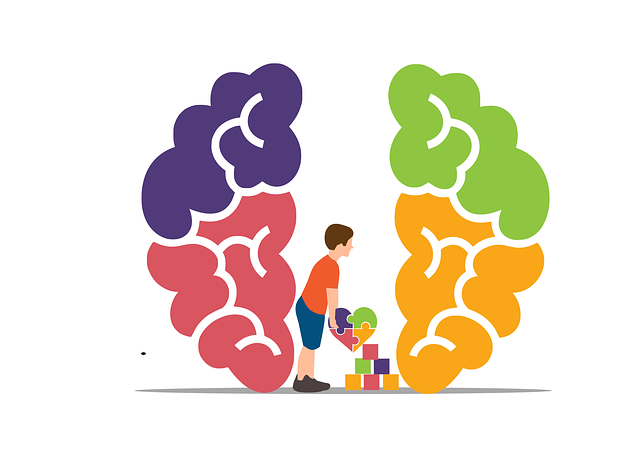Anxiety disorders significantly impact daily life, especially when chronic. Lakewood Veterans Therapy offers specialized support for veterans with PTSD-related anxiety, focusing on early identification and management. They promote emotional intelligence to develop effective coping strategies and advocate for mental health policies to reduce stigma. CBT is a powerful tool for managing negative thought patterns, while mindfulness and meditation help cultivate self-awareness and reduce stress. Physical exercise stimulates endorphins and improves sleep. Support groups provided by Lakewood Veterans Therapy offer safe spaces for connection and emotional support, fostering proactive mental well-being.
Anxiety is a common challenge, but managing it effectively can lead to improved well-being. This comprehensive guide explores various techniques for coping with anxiety, tailored specifically for Lakewood Veterans. From understanding the root causes and symptoms to powerful therapeutic approaches like Cognitive Behavioral Therapy (CBT), we delve into strategies to find calm. Additionally, discover the benefits of mindfulness, physical exercise, and support groups in reducing anxiety and fostering resilience, offering valuable insights for those seeking effective Lakewood Veterans therapy.
- Understanding Anxiety: Identifying Triggers and Symptoms
- Cognitive Behavioral Therapy (CBT): A Powerful Tool for Lakewood Veterans
- Mindfulness and Meditation: Finding Calm in a Busy World
- Physical Exercise and Its Impact on Anxiety Reduction
- Support Groups and Community: Overcoming Anxiety Together
Understanding Anxiety: Identifying Triggers and Symptoms

Anxiety is a normal human response to stress, but when it becomes overwhelming and chronic, it can significantly impact daily life. Understanding anxiety involves recognizing its triggers and symptoms, which vary from person to person. Some individuals may experience physical sensations like a racing heart or sweating, while others might struggle with intrusive thoughts or feelings of dread. Identifying these signs early is crucial for effective management, especially for veterans dealing with PTSD-related anxiety at Lakewood Veterans Therapy.
By understanding their triggers, veterans and those affected by mental illness can develop coping strategies. Emotional intelligence plays a vital role in this process, enabling individuals to recognize and manage their emotions. Moreover, advocating for better mental health policies and reducing the stigma surrounding mental illnesses through analysis and advocacy can facilitate access to necessary support, ensuring more effective anxiety management techniques are available to all who need them.
Cognitive Behavioral Therapy (CBT): A Powerful Tool for Lakewood Veterans

Cognitive Behavioral Therapy (CBT) has emerged as a powerful tool for Lakewood Veterans, offering them effective strategies to manage anxiety disorders. This evidence-based approach focuses on identifying and changing negative thought patterns and behaviors that contribute to anxiety, providing veterans with practical tools to cope in their daily lives. CBT is particularly beneficial for veterans who may face unique challenges related to their military service, such as post-traumatic stress disorder (PTSD).
By addressing the interconnectedness of thoughts, feelings, and behaviors, CBT empowers individuals to challenge distorted thinking and develop healthier coping mechanisms. This therapeutic approach has gained significant recognition in the mental health field, including efforts towards enhancing healthcare provider cultural competency training, reflecting the diverse needs of veterans. Mental Health Policy Analysis and Advocacy also plays a crucial role in ensuring accessible and culturally sensitive care for this population. Increased Mental Health Awareness can further reduce stigma, encouraging Lakewood Veterans to seek the support they deserve.
Mindfulness and Meditation: Finding Calm in a Busy World

In today’s fast-paced world, mindfulness and meditation have emerged as powerful tools for managing anxiety. These practices encourage individuals to focus on the present moment, cultivating a sense of calm amidst the hustle and bustle. At Lakewood Veterans Therapy, we understand the profound impact these emotional healing processes can have on veterans facing anxiety disorders. By integrating mindfulness into their daily routines, individuals can develop greater self-awareness, learn to recognize and accept their thoughts without judgment, and ultimately reduce the intensity of anxious feelings.
Stress management is a key component in anxiety reduction, and meditation plays a pivotal role here. Regular meditation practice has been shown to activate areas of the brain associated with positive emotions and decision-making, while also promoting relaxation and lowering stress hormone levels. As public awareness campaigns development continues to highlight the importance of mental health, mindfulness and meditation offer accessible and effective strategies for anyone seeking to navigate life’s challenges with greater composure.
Physical Exercise and Its Impact on Anxiety Reduction

Physical exercise has emerged as a powerful tool in the arsenal against anxiety disorders, offering a natural and effective way to manage symptoms. Regular physical activity stimulates the release of endorphins, often referred to as “feel-good” hormones, which can significantly reduce feelings of stress and anxiety. This effect is particularly notable in individuals seeking support through Lakewood Veterans Therapy, where a holistic approach to mental health care emphasizes the mind-body connection.
The benefits extend beyond biochemical changes. Exercise provides a sense of control and accomplishment, allowing individuals to actively engage with their well-being. Moreover, it promotes better sleep, which is crucial for managing anxiety, as lack of rest can exacerbate symptoms. Lakewood Veterans Therapy’s Community Outreach Program Implementation focuses on making physical activities accessible, while Mental Health Policy Analysis and Advocacy highlight the importance of incorporating such practices into broader mental health strategies to combat rising anxiety rates in communities across the nation.
Support Groups and Community: Overcoming Anxiety Together

Joining support groups or community-based programs can be a powerful tool in managing anxiety. These platforms offer a unique sense of belonging and understanding, where individuals facing similar challenges come together to share their experiences, strategies, and strength. At Lakewood Veterans Therapy, for instance, veterans often find solace in peer-led support groups that cater specifically to their cultural sensitivities and shared experiences, addressing not only individual anxiety but also the collective trauma that can contribute to it.
The benefits extend beyond emotional support; these groups foster a sense of community, providing opportunities for social skills training and building networks of like-minded individuals. This interconnectedness encourages accountability in practicing coping mechanisms and promotes a proactive approach to mental well-being. Incorporating cultural sensitivity in mental healthcare practice is integral to these initiatives, ensuring that everyone feels seen, heard, and supported in their journey towards managing anxiety effectively.
Anxiety management is a comprehensive journey, and exploring various techniques can empower individuals, especially Lakewood Veterans, to take control. From understanding anxiety’s roots through identifying triggers to adopting evidence-based therapies like CBT, each step offers a unique path to healing. Integrating mindfulness practices, engaging in physical activity, and connecting with supportive communities further enriches the process. By utilizing these effective strategies, Lakewood Veterans can find clarity, reduce symptoms, and embrace a more balanced life, demonstrating that managing anxiety is achievable and transformative.














